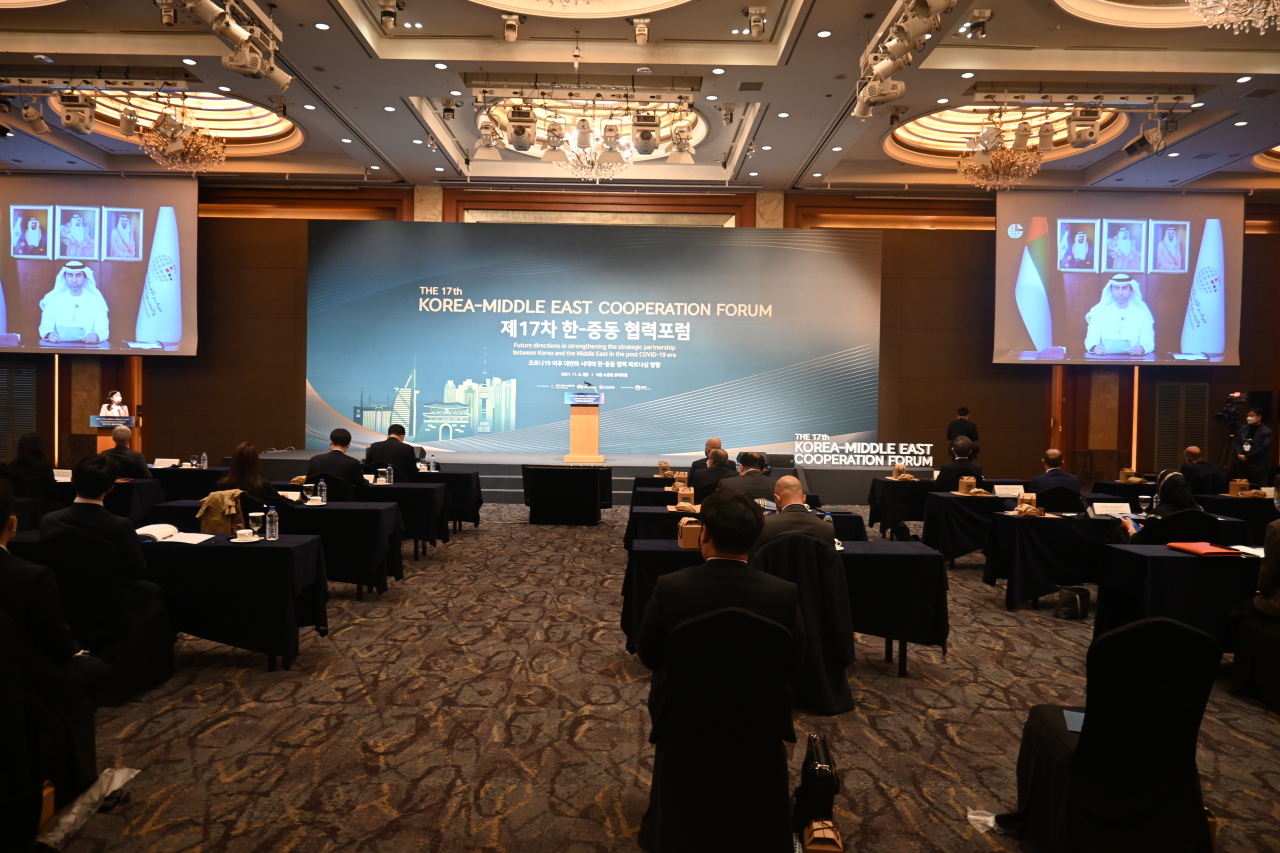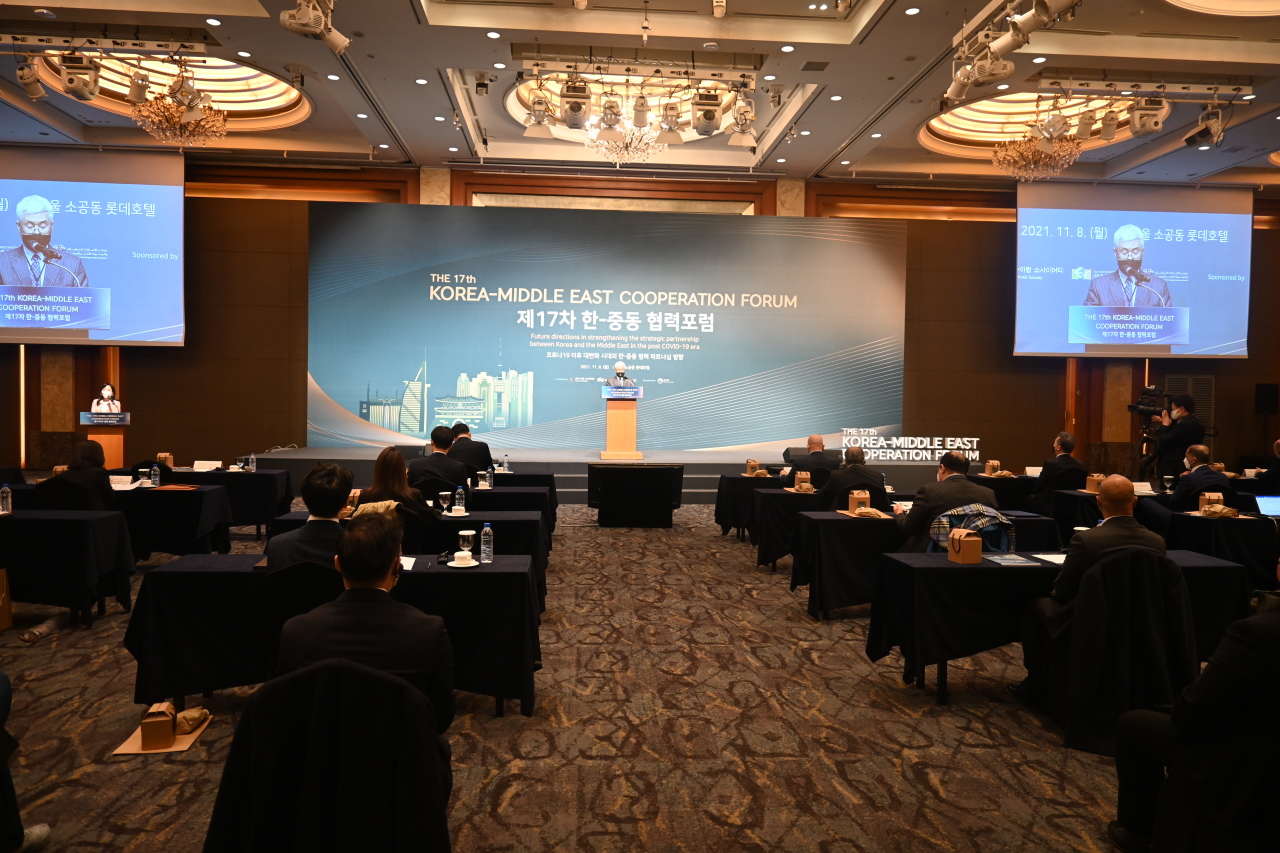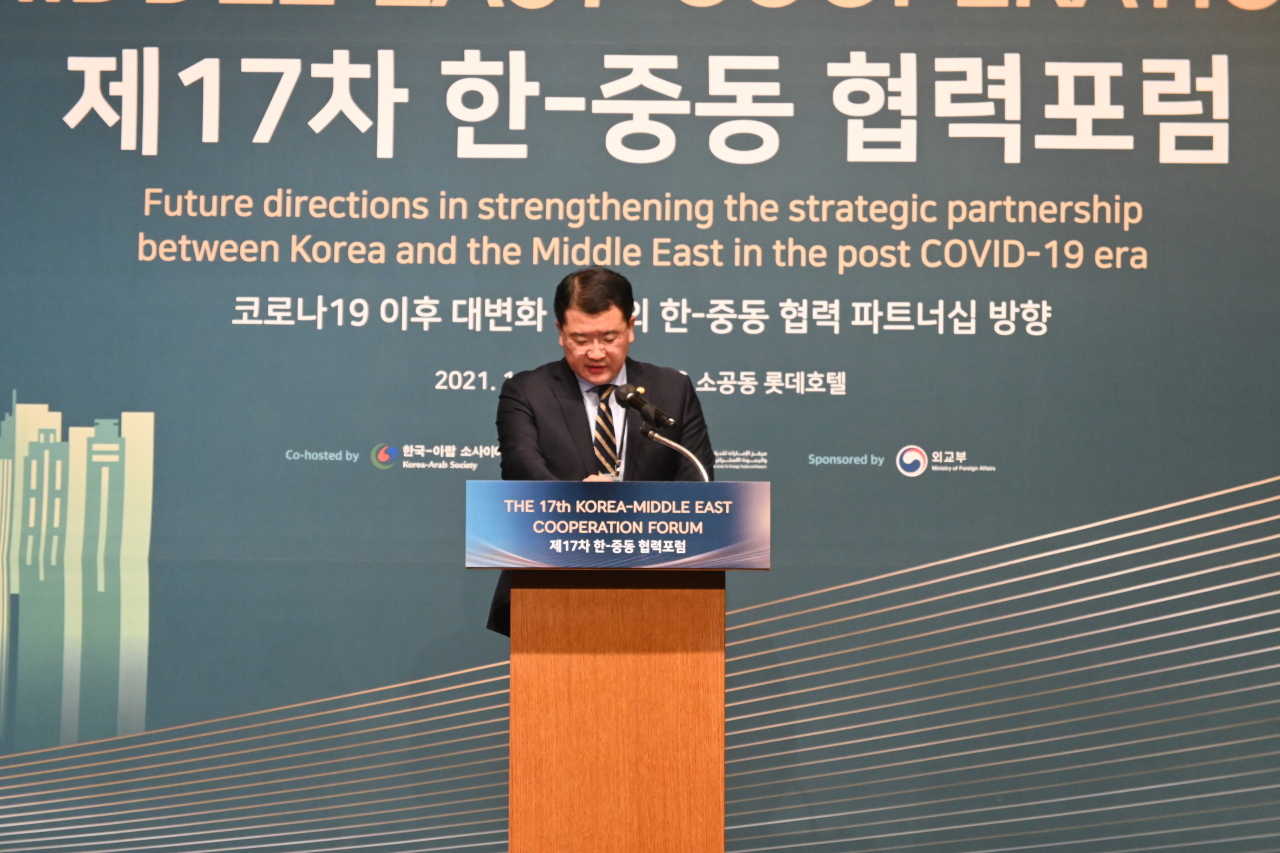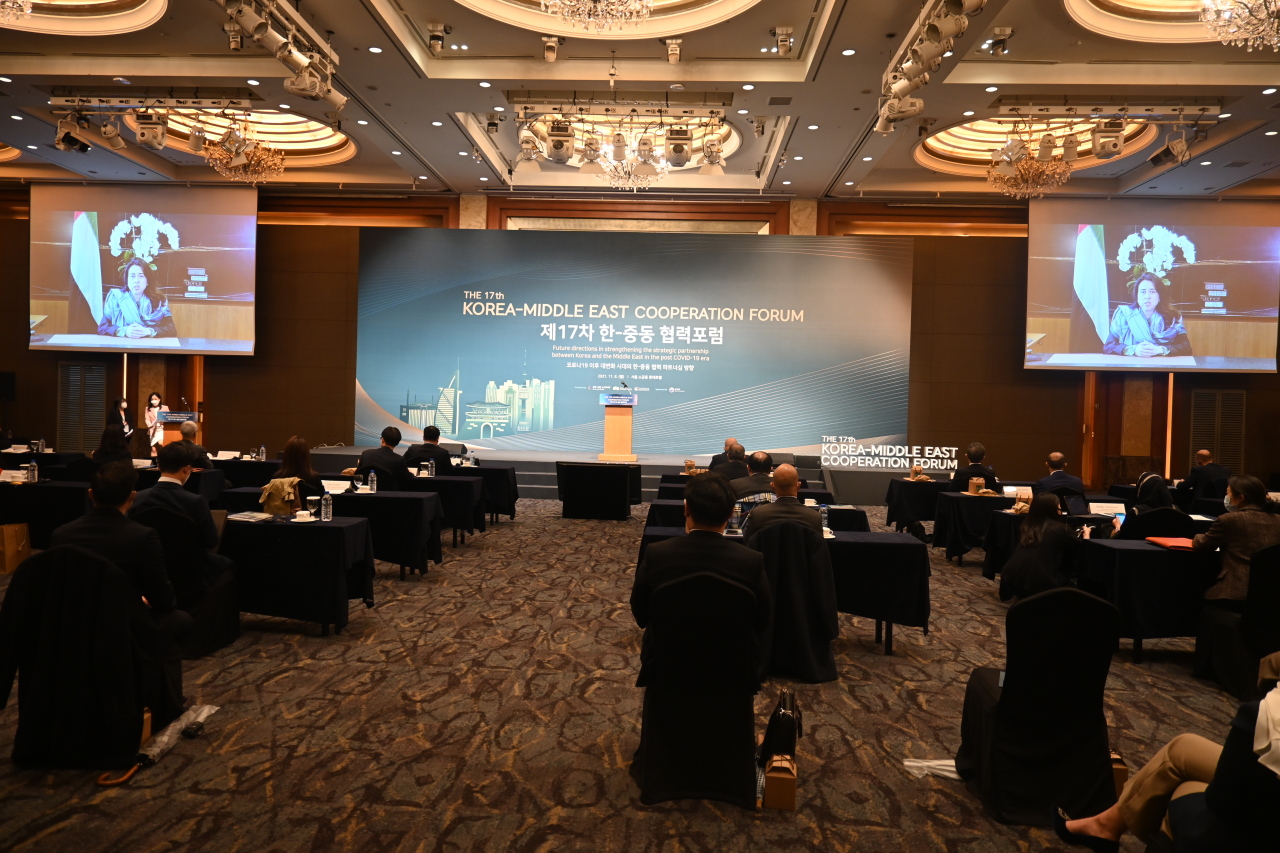
The head of Emirates Center for Strategic Studies and Research, Sultan Mohammed al-Nuaimi, delivers welcoming remarks through a video message at the Korea-Middle East Cooperation Forum at Lotte Hotel in Seoul on Monday. (Sanjay Kumar/The Korea Herald)
Bader M. al-Awadi, Kuwait’s ambassador to South Korea, said ties between Korea and Middle Eastern countries have remained strong and has withstood the challenges brought about during the pandemic.
“Humanitarian cooperation that took place between Korea and Arab countries in the field of limiting the spread of COVID-19, exchange of medical expertise, supply and devices, and sharing of creative ways Korea has invented to deal with pandemic, confirmed the ties and strength between Korea and its friends in the Arab world countries,” said al-Awadi.
Speaking at the 17th Korea-Middle East Cooperation Forum on Nov. 8, the Kuwaiti ambassador said that Korea and Middle Eastern nations need to solidify intellectual exchanges and consultation among government agencies to develop a road map that includes a clear vision for the next five years.
Al-Awadi cited Kuwait’s action plan with Korea in key areas including energy, cybersecurity, food security and technical education.
The Kuwaiti government’s Vision 2035 aims to turn Kuwait into a financial and trade hub, make it more attractive to investors, and help the private sector to lead the economy, creating competition and promoting production efficiency.
According to the Kuwaiti ambassador, an institutional framework that includes political consultation with ambassadors of the Arab countries accredited to Korea shall be developed.
At the forum, the head of Emirates Center for Strategic Studies and Research, Sultan Mohammed al-Nuaimi, highlighted the importance of combating issues brought about by the COVID-19 pandemic and climate change through cooperation.
“As the challenges increased, so as our need to address emerging issues and explore ways to strengthen alignment of our regional cooperation and advancing our economic ties, promoting tolerance, establishing peace and stability and achieving sustainable future we aspire to,” al-Nuaimi said during his welcome remarks through a video message.
Referring to the celebration of the golden jubilee of the UAE, al-Nuaimi underlined that 2021 represents a historic juncture at the national level.
To mark the 50-year milestone, the UAE government announced the “Principles of the 50,” a future road map for all UAE government entities for economic, political and social growth, al-Nuaimi said.
Separately, al-Nuaimi also pointed to the success of Expo 2020 currently being held in Dubai under the theme, “connecting minds, creating the future.” The expo, which invited participants from 192 countries, provided an interactive platform to co-create, innovate and lay the ground work for a brighter and more prosperous future for the next generation, al-Nuaimi said.
Even as 2021 is coming to an end, al-Nuaimi said countries still need to work together on a global level to address challenges in the post-COVID 19 era.
“We must strive to overcome security and stability, build strategic partnership,” he said, highlighting the need also for exchanging experiences and knowledge in the field of energy, technology and improve people’s lives for sustainable future.

Caption 2: Korea-Arab Society Secretary-General Ma Young-sam delivers opening remarks at the Korea-Middle East Cooperation Forum. (Sanjay Kumar/The Korea Herald)
Meanwhile, Ma Young-sam, secretary-general of the Korea-Arab Society, in his opening remarks said the aftermath of COVID-19 and the devastating crisis of climate change has signaled the need for a new approach to development for the Middle East and Korea.
“(The) forum will serve as an opportunity to pave the way for a future of shared prosperity with the foundation of a future-oriented relationship where both Korea and the Middle East develop together,” Ma said.

Caption 3: South Korea’s Vice Minister of Foreign Affairs Choi Jong-kun delivers a keynote speech at the Korea-Middle East Cooperation Forum. (Sanjay Kumar/The Korea Herald)
South Korea’s Vice Minister of Foreign Affairs Choi Jong-kun echoed Ma’s remarks, saying Korea and the Middle East have to prepare for new standards in the post COVID-19 era by expanding the horizon of cooperation to new fields such as green energy, smart agriculture, and health and medical care.
The UAE Foreign Ministry’s assistant minister for political affairs, Lana Zaki Nusseibeh, said their commitment to achieve net-zero carbon emissions by 2050 was a shared ambition of Korea.
“As the middle east trajectory of progress continues, it is important to recognize South Korea’s continued engagement with the UAE and the Middle East as a powerful amplifying force for good,” Nusseibeh said.

The UAE Foreign Ministry’s assistant minister for political affairs, Lana Zaki Nusseibeh, speaks at the Korea-Middle East Cooperation Forum. (Sanjay Kumar/The Korea Herald)
Nusseibeh also expressed gratitude for Korea’s endorsement of the UAE’s bid to host the 28th session of the United Nations climate summit, or COP28, in 2023.
“We are committed to rallying a unifying science-based approach that advances responsible environmental policy in the Middle East and around the world and respond effectively to the regions development need,” Nusseibeh said.
“We also look forward to actively support Korea’s bid to host COP33,” she said.









![[KH Explains] How should Korea adjust its trade defenses against Chinese EVs?](http://res.heraldm.com/phpwas/restmb_idxmake.php?idx=645&simg=/content/image/2024/04/15/20240415050562_0.jpg&u=20240415144419)